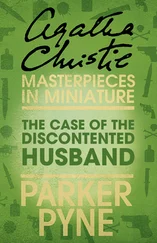It had been nearly fifteen years since Earl had seen Kyle. Not since the slushy day he’d fetched him from out front of the holding cells where the boy had spent the night for public drunkenness, aggravated assault, and God knows what else. Earl drove him straight to the bus station, put six 20s in his hand, and turned his back on him. He was sixteen years old.
Earl realized, there in his basement, that a rarely visited part of himself had long ago decided the boy was dead. His first thought was to call his daughter, Sarah. But that wouldn’t do. She was a fragile creature, the kind of girl who’d be bent all out of sorts by something like that, one who was born sure that every miserable thing on this earth was her own damn fault. And what would she do, anyway? Go and get him? Bring him home? She lived in Cold Lake, Alberta — a cruel, wind-beaten place — with her four-year-old daughter and the girl’s father, a flight sergeant named Reginald, a man Earl had never met, who for two weeks of every three flew thousands of kilometres over empty tundra. Since she’d left home, Sarah had called Earl at all hours, when she heard noises at night in her basement, or after eating some food she suspected had expired. She’d been a disorganized but well-behaved girl, and it had been a great surprise when she’d become pregnant at seventeen by a boy named Dennis who lived a few blocks north over on Whalen Street. If the two had been dating, Earl and Tuuli had never known. Dennis had worked with Earl at Hydro one summer, digging and backfilling kilometres of trench for underground cable, only to be laid off when the ground froze, but eventually secured a better-paying job in a diamond mine five hours north. Earl had found him to be a good worker and had no unkind words for anyone who took pride in holding down a job.
Sarah decided to keep the baby, and when Kyle was born she merely continued living at home without ever asking their permission. But neither Earl nor Tuuli minded. Sarah was the sort of girl you heard about on the radio who’d do something like put a baby in the oven to dry it after a bath, so they slept better with her close by.
Dennis sent money with good regularity and came for visits on his longer stretches of off days. He had most of his things at their house, in boxes, which Earl had locked in the tool shed because Kyle would get into them. Earl had once caught seven-year-old Kyle brandishing a dull Mexican switchblade, and another time found a skin magazine hidden in his room; Earl threw both the knife and the magazine in the trash, because there are things you don’t bring into another man’s house. When Dennis would visit, he’d come on a foreign motorcycle that held his body at an absurd angle, and pass hours wrestling with the boy in the backyard while Kyle roared and his ears turned crimson. With Dennis around, Kyle was transformed. He went from a quiet and for the most part respectful child to a frantic performer, an attention seeker. He’d tear about the house with one of Tuuli’s old dresses fluttering from his shoulders like a cape, talking nonsense, singing and carrying on, all the while shooting expectant glances at his father. “I want to show you another thing,” he’d say, leading his father by the finger, and when they got where they were going, he’d have forgotten what he meant to show but by that time was on to something else. Showing off was the only way to describe it. Earl had never cared for spectacle of any kind. In his experience, any person who craved the attention of others usually wasn’t much worth paying attention to, and this was something the boy would have to learn. In the throes of Kyle’s nagging, Dennis found little peace, and Earl pitied him. He had to lock the boy in his room and mow both the front and back lawns so Dennis and Sarah could take some time alone.
Over the years, Kyle was left increasingly riled up and difficult after Dennis’s visits, and Sarah took little interest in righting him. Soon, the boy’s sole pleasure when his father was away was to send him letters, and this had been pretty much the only way they could convince him to learn how to write. But Dennis never replied. And by the time Kyle was eleven, the visits had dwindled to nothing. Tuuli had tracked them on a calendar she hid from her daughter in the glove compartment of her car, marking days with circled D’s. Kyle grew sullen and neglected chores he’d once done happily. Sarah was called to the school principal’s office a number of times for his disruptive behaviour in class, but each time she was to go, she got a stomach ache or migraine and stayed home. As much as this pained him, Earl felt it wasn’t his place to intervene.
“We can’t just do nothing,” Tuuli had said on their way back from bowling. It was a dry summer evening, the windows down, the sky full of minced, pink clouds, the kind of night Earl would later turn over in his mind for hours.
“He’s a good kid most of the time — there’s something off with him is what,” he said, “and with a mother who can hardly do up her own shoes, who can blame him?”
“Oh, Earl, he hasn’t a single friend, the neighbourhood kids treat him like the plague.”
“Well, if he acts like the plague, he’d better get used to kids covering their mouths,” Earl said, and Tuuli frowned. Earl shifted his grip on the wheel. “He just needs to take responsibility for himself. He’ll settle down when he’s working age. There’s no use beating ourselves up over it.”
Shortly after, one of Sarah’s friends from high school found a job as a banquet waitress on a Norwegian cruise boat, and she told Sarah there was a spot for her.
“I think I’d regret it if I didn’t do it,” Sarah said to her parents over oatmeal one morning. Kyle was at the end of the table, fiddling with the brown sugar container.
“That’s enough sugar, Kyle,” Earl said.
“We’ve always wanted to go on a cruise, haven’t we, Earl?” Tuuli said.
“That’s plenty,” Earl said, feeling his throat close as the boy continued heaping it on.
“It will be good experience,” Sarah said, and Tuuli took her hand while Earl nodded then stood in an effort to disperse the rage building in him as he eyed the wasteful peaks melting in Kyle’s bowl like dirty glaciers.
It was clear what Sarah meant by this, even to Kyle. She was fragile, too young for a child, everyone knew it, always had, and now with Dennis gone there was nothing for her in this place, and no opportunity to better herself. The work would be just the thing for her. What good was there in asking the boy what he wanted? They’d always picked up after their daughter and this wasn’t much different. And so it was that when Sarah set off on a bright Friday afternoon for the airport to meet a great white ship anchored off the coast of Florida, while her son played lawn darts against himself in the backyard, Earl and Tuuli became the boy’s guardians.
Though they’d done their best raising him, it had come as no great shock to Earl that the boy had ended up where he had, rooting around in the garbage, eating at soup kitchens, and probably living off the dole.
The night Kyle appeared on his television, Earl lay sleepless on the left side of the mattress, the side he still found himself migrating to even though his bed was no longer shared, mulling over the existence of this boy — who was really now a man — he’d for so long pushed from his mind.
The next morning Earl changed into his work clothes and pulled on socks for the first time in weeks. Outside, he shook his head at the sorry condition of the yard and set about carefully weeding then mowing his lawn, finally edging it with a tool he also used in winter to chop ice from the driveway. In the afternoon he turned the vegetable bed and planted two rows of potatoes. The following day he rose at six and repainted the small bungalow exactly the same washer-fluid blue it had been for as many years as he could accurately recall. The repetitious quality of the work eased his thinking. And at the end of it, Earl was left with a curious feeling of obligation to his grandson. Not that he’d done him wrong, but perhaps Earl could now, after all these years, talk some sense into him, have him give his head a shake. He saw this as plainly now as he did anything else in his yard: he needed something to do, a project. Work kept a person from wither, from rot, and he was wasting away in this place. Tuuli would have thrown open the curtains, stuck a to-do list in his hand, and roused him from the basement long ago, but he didn’t have her anymore, so he had to take the initiative himself, and this also scared him.
Читать дальше












